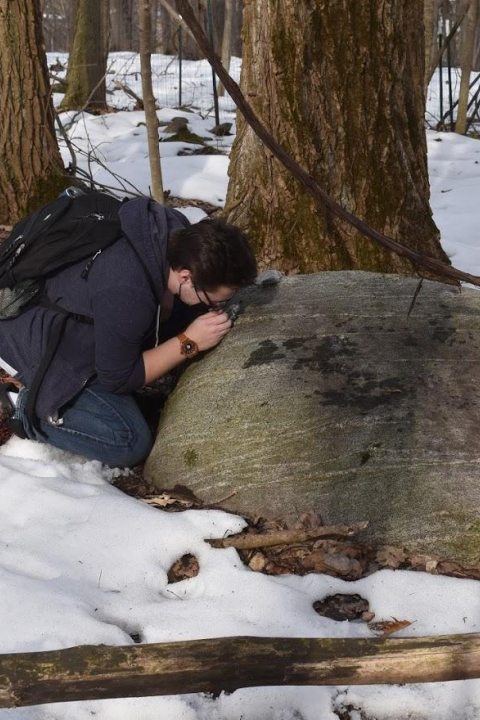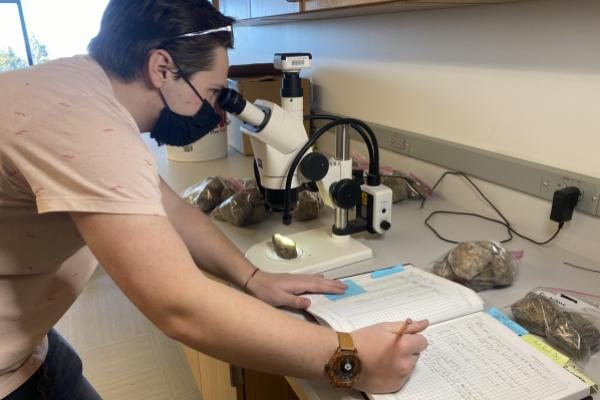
Geological mapping of glacial debris at Rice Creek Field Station
Contact Information
Faculty Advisor: Dr. Nicholas DiFrancesco
Major: Geology
What is the focus of your research and why is it important?
To examine the geological processes that created the landscape and why it looks how it does today, as well as educate the community on these processes and to educate them about their environment. We did this by walking through Rice Creek Field Station several times and analyzing spots along the trail. Twelve spots were marked on a map; these spots are places like where snowmelt runs into the pond, or big erratics that were sampled and examined. These places are excellent to show to the public, as some are very important to the ecosystem and they are common to most places in the region/on Earth. These stops will be made into an interactive map: QR codes at each stop can be scanned and a description of what they are seeing, as well as pictures, will appear on their phones.
The other part of my research is to discover exactly what this glacial debris is made of. On both sides of the drumlin, we set up several quadrats where we took samples. My partner and I collected about 2,500 samples. Approximately 500 of them were softball-sized hand samples. The rest were sifted out of the ground and are pebble-sized, at most 9 mm. We then washed and counted them by site, and then within each site, we categorized them between crystalline and sedimentary. Then we broke sedimentary down to fossiliferous and non-fossiliferous. We also took about 10 or so of the crystalline rocks and cut them into thin sections. We are doing that to get statistical, petrographic, and geochemical analyses so that we can know what rocks were scraped up by the glacier, and from where they originated.
What have you learned about conducting research?
I have learned that research requires a lot of time and you need to be meticulous. It also requires a ton of data collection.
Describe a memorable research experience at Rice Creek Field Station.
Walking around Rice Creek trying to decide what could be explained to the public was awesome. It really solidified the fact that science has branches but it is really one interlocking subject.
Where did you grow up and how did you become interested in science?
I grew up in the Hudson Valley and I have always been interested in science. There was never a time when I wasn't. I've always been trying to build things or figuring things out. "Why?" was a frequent question for me.
What are your plans for the future?
As of now, I'm not sure. I would love to pursue a career in geology, but I would also like to teach.
